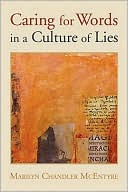The King's Speech: A Review
A King’s Courage in Overcoming Adversity Embodies the Spirit of a Nation
“Some have greatness thrust upon them,” Shakespeare once observed. His words are an apt description of Prince Albert’s journey to become King George VI of England. The King’s Speech follows Albert's struggles to overcome a debilitating speech handicap in order to lead his nation through the dark days of World War II.
Prince Albert (called Bertie by his family) never expected nor wanted the throne of England. His older brother Edward, charismatic and confident, was first in line to the throne and seemed the perfect choice to lead the nation. Albert suffered from shyness and his crippling stammer only made it worse. Even before the possibility that Edward might abdicate the throne, Albert tried to find someone who could cure his stutter.
It seemed a fruitless search. After visiting nine therapists, Albert had nearly given up all hope. But his wife, Elizabeth, would stop at nothing to help her husband. She discovered an Australian speech therapist, Lionel Logue, of questionable methods and even more questionable qualifications, but who turned out to be just the friend the future king needed.
This inspiring story won The King’s Speech twelve Oscar nominations. But, of course, a good story does not always make a great film. However, The King’s Speech was in good hands with director Tom Hooper. A pro at the historical drama genre, Hooper directed the popular John Adams miniseries and won an Emmy for Elizabeth I.
David Seidler wrote the screenplay that bristles with a dry English humor. When Logue asks Bertie if he knows any jokes, the Prince replies, “Timing isn’t my strong suit.” Yet, the subtle humor does not overpower the story. Seidler wrote a script that engages all of his sympathies – he too suffered from a stutter as a child.
The film also benefits from the strong rapport between Colin Firth (who plays Prince Albert) and Geoffrey Rush (as Lionel Logue). Logue insists on calling the Prince by his Christian name, in defiance of royal etiquette. Logue knows that in order to truly help the Prince, Albert must trust him. Albert must see Logue not as his doctor, but as his friend. Helena Bonham Carter turns in an equally fine performance as Albert’s wife, never wavering in her love and support for her husband.
The King’s Speech is a classic underdog story where an unlikely hero is faced with nearly insurmountable odds. It is said that Prince Albert wept when he learned that his brother Edward had abdicated the throne in order to marry the American divorcée, Wallis Simpson. Albert knew that he would be humiliated as King if he could not conquer his stammer. The introduction of the radio meant that he must speak publicly to the people. Without Logue’s help, perhaps Prince Albert would also have abdicated the throne.
However, Albert’s tenacity and courage to conquer his defect prove that he was more than worthy to lead a nation. Indeed, through his friendship with Logue, Albert truly came to know and respect the common Englishman, a class of people the royalty rarely rubbed shoulders with.
At one point, he angrily asks Logue, “If I am king, where is my power? Can I declare war? Form a government? Levy a tax? No! And yet I am the seat of all authority because they think that when I speak, I speak for them.” By the time the film reaches its climatic scene, we know that King George VI does speak for all English people – for the commoner and for the aristocrat and for all who have conquered adversity. His is a story of triumph.
The movie ends with England’s declaration of war against Germany. And, thus, The King’s Speech is elevated to a parable for the indomitable will of the English people. Though the darkness of Nazi Germany nearly overwhelmed their small island, they too would stand firm and triumph.
Watch the trailer here.
[The King's Speech is rated R for language. There are several scenes where Albert swears during his therapy. However, many viewers were shocked to learn that the film had earned an R rating (it is quite tame compared to some PG-13 movies I've seen, though I would not recommend the film for children). Interestingly enough, however, executive producer Harvey Weinstein is considering recutting the movie in order to gain a PG-13 rating. It may be re-released in theaters later this February. Read more about that here.]
Labels: Friday Films, Movie Reviews
Posted by Nicole Bianchi at 8:02 PM
![]()






 This is life seen through the eyes of a writer. A blog that critically examines literature, music, and film. NB, initials which coincidently coinside with the Latin words "nota bene" (mark well), belong to the blog poster, a bibliophile who likes to haunt libraries and book stores, talk about all things bookish, and ramble at any length on things regarding literature. Many of the articles posted here were written as essays for high school and college.
This is life seen through the eyes of a writer. A blog that critically examines literature, music, and film. NB, initials which coincidently coinside with the Latin words "nota bene" (mark well), belong to the blog poster, a bibliophile who likes to haunt libraries and book stores, talk about all things bookish, and ramble at any length on things regarding literature. Many of the articles posted here were written as essays for high school and college.






0 Comments:
Post a Comment
<< Home